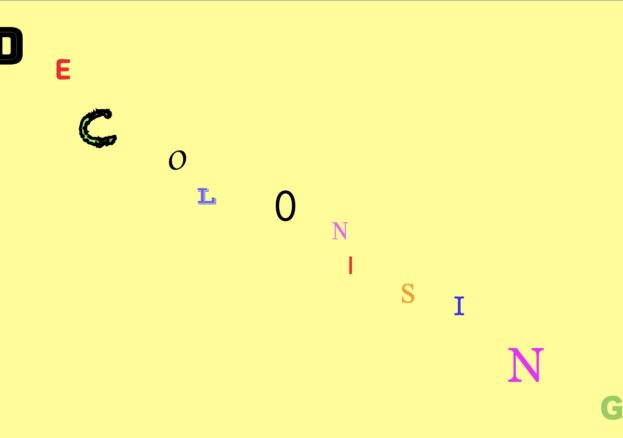
There’s less chance of any form of activism succeeding, if the right language is not used to articulate what it’s about. The fourth iteration of the Interrogating Language Zoom series takes place on Monday Oct. 11 2021, 6-9pm (UK).
“We are the only group in the world who deny ourselves, preferring to be known as “Negroes” rather than Africans. In order to know ourselves we must learn about African history and culture. This is one of the most important steps towards creating unity among Africans at home and abroad.” Walter Rodney
Led by history consultant and TAOBQ (The African Or Black Question) co-ordinator Kwaku, his presentation provides an Africanist take on the use of decolonising language, terminologies and mind-set covering areas such as anti-racism, identity politics, equality, diversity and reparations.
To underscore his points, Kwaku will lead this discussion using the backdrop from the first pan-African conference, through to the founding of the UNIA-ACL, its first international convention from which the seeds for African History Reflection Day (AHRD) were sown, to today’s Decolonising and Black Lives Matter movements.
The audience will have a chance to respond and also feedback. It will be moderated by community and political activist Nana Asante. In the last hour, Kwaku will introduce the Araning concept, and community and environmental activist Awula Serwah will open the Should Africans Have African Names? section – click here to read one of her articles on African names.
For more details or to book: https://AfricanHistoryPlus.eventbrite.com.
Here’s some food for thought to get you thinking on the issues, and the importance of language and terminologies when dealing with either identity politics or history:
African, Black, or People Of Colour?
African Origin, African Heritage, or African Descent?
Afro-Caribbean, African-Caribbean, or Caribbean?
African Caribbean, African or African/African/Caribbean?
African British or British African?
Black History, Africana Studies or African History?
BAME (Black, Asian, Minority Ethnic) or AAME (African, Asian, Minority Ethnic)?
Racism, Afriphobia, or Anti-Black Racism?
Caribbean or West Indian?
Black History Month or African History Month?
Slave or Enslaved?
Slavery or Chattel Enslavement?
Trans-Atlantic Slave Trade or Trans-Atlantic Trafficking of Enslaved Africans?
Slavery Memorial Day, International Day for the Remembrance of the Slave Trade and its Abolition, or International Day of African Resistance Against Enslavement?
#BlackLivesMatter, #AfricanLivesMatter or #BlackLivesMatter/#AfricanLivesMatter?
The body that organised the 1900 Pan-African Conference was the African Association, which was led mainly by African-Caribbean people.
Marcus Garvey simultaneously set up the UNIA (Universal Negro Improvement Association) and the ACL (African Communities League) as sister organisations in 1914.
When the likes of John Archer and John Alcindor co-founded the African Progress Union in 1918, it was meant to be “an Association of Africans from various parts of Africa, the West Indies, British Guiana, Honduras and America.”
In America, when they talk about Black, that’s in reference to a person of African heritage. But is the same true in Britain? No. So should we consider an alternative to say #AfricanLivesMatter, like #AfricanLivesMatter, or the combination of the two?
Finally, when Marcus Garvey was asked ‘Are you an African or a Jamaican?’ he replied ‘I will not give up a continent for an island.’
